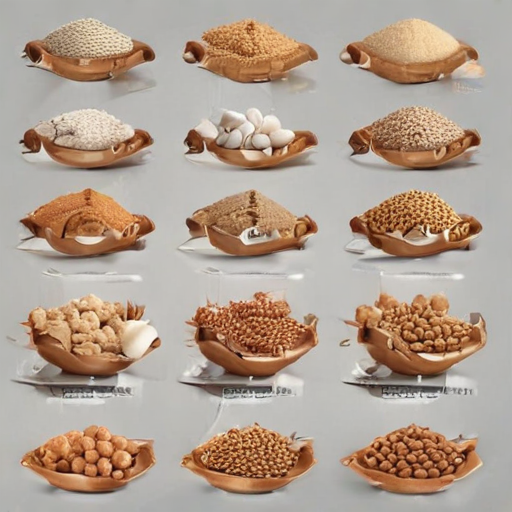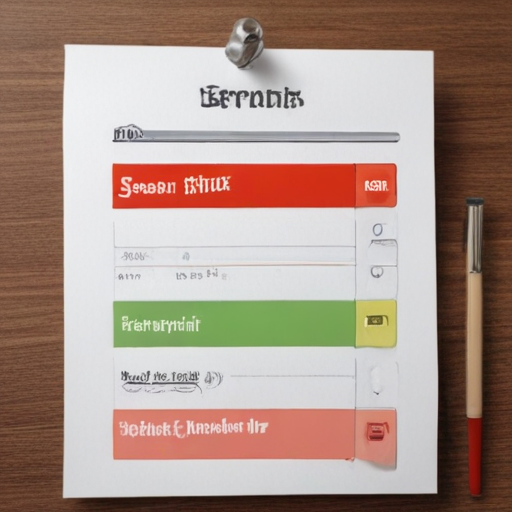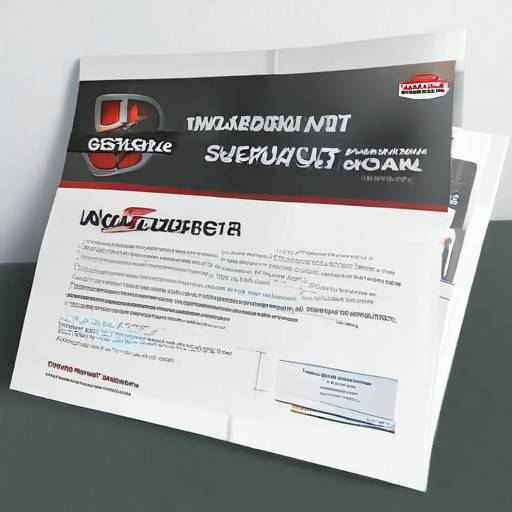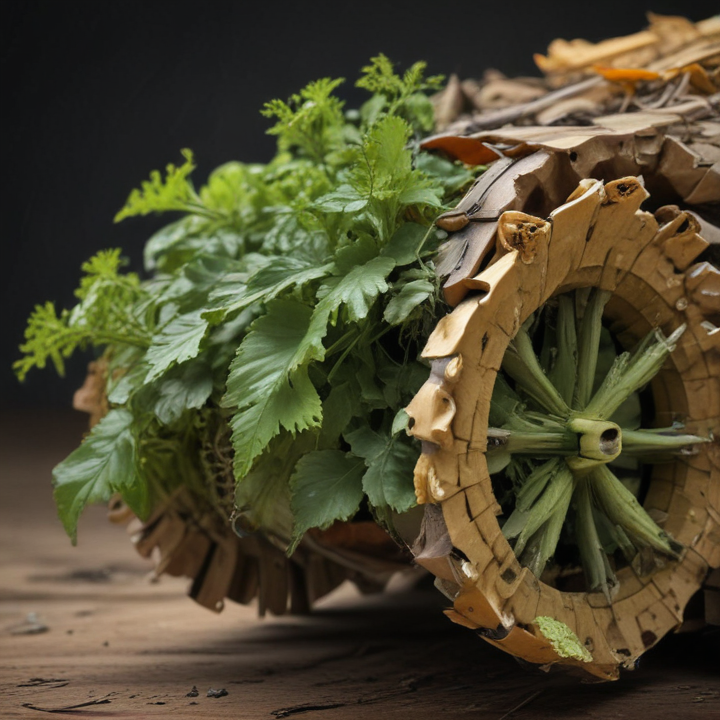serbuk kunyit Safety Certifications
When considering the safety and certification of turmeric powder (serbuk kunyit), several standards and certifications may apply. These ensure the product's quality, safety, and compliance with regulatory requirements:
1. Food Safety Standards:
- HACCP (Hazard Analysis and Critical Control Points): Ensures systematic preventive approaches to food safety, identifying and controlling hazards.
- GMP (Good Manufacturing Practices): Covers guidelines for the proper manufacturing processes to ensure product safety and quality.
2. ISO Certifications:
- ISO 22000: A comprehensive food safety management system that integrates principles of HACCP.
- ISO 9001: Ensures quality management systems are in place, though not specific to food safety, indirectly assuring consistent product quality.
3. Organic Certifications (if applicable):
- USDA Organic: For products claiming organic stature within the United States.
- EU Organic Certification: For organic products in the European market.
- India Organic: Certification for organic products in India.
4. Non-GMO and Gluten-Free:
- Look for certifications from recognized bodies like the Non-GMO Project or Gluten-Free Certification Organization (GFCO), depending on the specific dietary requirements.
5. Allergen and Contaminant Testing:
- Ensure serbuk kunyit has been tested for common allergens, heavy metals, and contaminants like pesticides and aflatoxins. Certifications from labs accredited by bodies like ISO/IEC 17025 support credibility.
6. Halal and Kosher Certifications:
- Halal Certification: Ensures products are permissible under Islamic law.
- Kosher Certification: Ensures products comply with Jewish dietary regulations.
These certifications collectively ensure that turmeric powder is safe, high-quality, and meets various regulatory and consumer expectations. Always request and verify these certifications from suppliers to ensure product authenticity and compliance.
List Reference Technical Parameters of "serbuk kunyit"

List Product features of "serbuk kunyit"
"Serbuk kunyit," or turmeric powder, is a popular spice derived from the finely ground dried root of the Curcuma longa plant. Here are the primary features of serbuk kunyit:
1. Vibrant Color:
- Golden-Yellow Hue: The powder has a striking golden-yellow color that adds visual appeal to various dishes.
2. Aromatic Flavor:
- Distinct Earthy Aroma: It offers a warm, earthy scent with mildly peppery and bitter undertones.
- Complex Taste Profile: The taste includes hints of pepper, mustard, and mild bitterness.
3. Nutritional Benefits:
- Rich in Curcumin: Contains curcumin, an active compound known for its anti-inflammatory and antioxidant properties.
- Vitamins and Minerals: Includes vitamins C, E, and K, as well as essential minerals like iron, potassium, and manganese.
4. Potential Health Benefits:
- Anti-Inflammatory Properties: Helps reduce inflammation in the body.
- Antioxidant Effects: Neutralizes free radicals and protects cells from damage.
- Digestive Aid: Supports healthy digestion and gut health.
5. Culinary Uses:
- Versatile Spice: Widely used in various cuisines including Indian, Middle Eastern, and Southeast Asian dishes.
- Coloring Agent: Naturally imparts a bright yellow tint to foods such as curries, rice, sauces, and marinades.
- Flavor Enhancer: Adds depth and a warm flavor to both savory and sweet dishes.
6. Functional Properties:
- Anti-Bacterial and Anti-Septic: Useful in preserving food and maintaining hygiene.
- Stain Remover: Has mild abrasive properties which can be used for cleaning purposes.
7. Packaging and Storage:
- Airtight Packaging: Typically comes in sealed containers to preserve freshness.
- Long Shelf Life: When stored in a cool, dark, and dry place, it maintains its potency for an extended period.
8. Cosmetic and Medicinal Uses:
- Skincare: Used in face masks and treatments to improve skin health and complexion.
- Traditional Medicine: Employed in Ayurvedic and traditional Chinese medicine for various treatments.
These features make serbuk kunyit a versatile and beneficial product both in the kitchen and beyond.
List Various Types of "serbuk kunyit"
"Serbuk kunyit" or "turmeric powder" is derived from the dried and ground rhizome of the Curcuma longa plant. There are various types based on their source, quality, and intended use. Here are some notable types:
1. Organic Turmeric Powder: Made from organically grown turmeric, this type is free from synthetic pesticides and fertilizers, offering a purer and potentially more nutritious product.
2. Non-Organic Turmeric Powder: Sourced from conventionally grown turmeric, this type may contain traces of agricultural chemicals but is often more affordable.
3. Wild Turmeric Powder (Curcuma aromatica): Known for its medicinal and cosmetic uses rather than culinary, wild turmeric has a different aroma and a lighter color compared to culinary turmeric.
4. Kasthuri Turmeric Powder: Derived from a specific variety known for its fragrant aroma and is commonly used in beauty and skincare treatments rather than cooking.
5. High-Curcumin Turmeric Powder: This type is specially processed to contain a higher concentration of curcumin, the active compound known for its anti-inflammatory and antioxidant properties.
6. Culinary Turmeric Powder: The most commonly available type, used primarily for cooking, it varies in quality and pigmentation, influencing flavor and color.
7. Powder Blends: Often mixed with other spices like black pepper to enhance bioavailability of curcumin, these blends are tailored for specific health benefits.
Each type of turmeric powder caters to different needs, from culinary to medicinal and cosmetic applications, making it a versatile ingredient.
List Application of "serbuk kunyit"
Certainly! "Serbuk kunyit," or turmeric powder, is a bright yellow spice derived from the rhizome of the Curcuma longa plant. It has been a staple in traditional medicine and culinary practices for centuries. Here are some key applications:
1. Culinary Uses
- Cooking and Flavoring: Turmeric powder is widely used in Asian cuisine, especially in Indian, Thai, and Middle Eastern dishes. It's a key ingredient in curry powders, stews, and sauces, offering a warm, earthy flavor.
- Coloring Agent: When added to rice, soups, or baked goods, turmeric imparts a vibrant yellow color, which enhances the visual appeal of dishes.
2. Health and Medicine
- Anti-inflammatory Properties: Curcumin, the active compound in turmeric, exhibits strong anti-inflammatory effects. It's used as a natural remedy for conditions like arthritis and joint pain.
- Antioxidant Benefits: Turmeric is rich in antioxidants, which help in neutralizing free radicals and reducing oxidative stress, potentially lowering the risk of chronic diseases.
- Digestive Health: Turmeric aids digestion by stimulating the production of bile, which helps in breaking down fats. It is also beneficial in managing conditions like bloating and gas.
- Immune System Support: Regular consumption of turmeric can boost the immune system due to its antibacterial, antiviral, and antifungal properties.
3. Skincare and Beauty
- Face Masks and Treatments: Turmeric is popular in skincare routines for its anti-inflammatory and antibacterial properties. It can help reduce acne, brighten skin, and improve overall complexion.
- Anti-aging: The antioxidants in turmeric protect the skin from environmental damage and may reduce the appearance of wrinkles and fine lines.
4. Cultural and Ritualistic Uses
- Ceremonial Uses: In many cultures, turmeric is used in ritualistic practices, including weddings and religious ceremonies, as a symbol of purity, fertility, and prosperity.
5. Preservation
- Food Preservative: Due to its antimicrobial properties, turmeric powder can be used as a natural preservative to extend the shelf life of food.
In summary, serbuk kunyit is a versatile ingredient that plays significant roles in culinary arts, health remedies, skincare, cultural rituals, and food preservation. Its multifaceted applications make it a valuable commodity in various domains.
List Buyer Types of "serbuk kunyit"
"Serbuk kunyit," or turmeric powder, has various applications, attracting a diverse set of buyers. Here are the key buyer types:
1. Individual Consumers
- Health Enthusiasts: Use turmeric powder for its anti-inflammatory and antioxidant properties.
- Home Cooks: Incorporate it into daily cooking, especially in Asian cuisines.
- DIY Beauty Fans: Create homemade skincare products like face masks.
2. Food and Beverage Industry
- Restaurants and Cafés: Use turmeric powder to add flavor and color to dishes and beverages.
- Food Manufacturers: Incorporate it in packaged foods like curries, snack foods, and drinks.
- Health Food Brands: Create health-focused products like turmeric lattes, teas, or supplements.
3. Health and Wellness Industry
- Supplement Companies: Produce turmeric capsules or powders targeting anti-inflammatory and antioxidant benefits.
- Ayurvedic and Herbal Practitioners: Use turmeric as a core ingredient for natural remedies.
4. Cosmetic and Personal Care Industry
- Skincare Product Manufacturers: Utilize turmeric in beauty products due to its anti-inflammatory and brightening properties.
- Spa and Wellness Centers: Use turmeric in treatments like facials and scrubs.
5. Agricultural and Veterinary
- Animal Feed Producers: Add turmeric powder to animal feed for its purported health benefits.
- Farmers and Gardeners: Utilize it as a natural pesticide.
6. Exporters and Distributors
- International Traders: Export turmeric powder to markets with high demand for culinary or medicinal purposes.
- Local Distributors: Supply to various retail outlets, ensuring availability in the market.
Each of these buyer types values "serbuk kunyit" for its unique properties, ranging from culinary applications to health and wellness benefits. As a versatile product, turmeric powder serves a broad spectrum of needs and markets.
List "serbuk kunyit" Project Types for Different Industries
Sure! Here's a list of project types involving "serbuk kunyit" (turmeric powder) for different industries:
Food and Beverage Industry
1. Spice Blends Production: Creating various spice mixes incorporating turmeric powder for culinary uses.
2. Turmeric-based Beverages: Developing turmeric lattes, teas, and other health drinks.
3. Ready-to-Eat Meals: Formulating pre-packaged meals featuring turmeric as a key ingredient.
Pharmaceutical Industry
1. Herbal Supplements: Producing capsules or tablets containing turmeric powder for its anti-inflammatory properties.
2. Topical Ointments: Developing creams and balms with turmeric for skin conditions.
3. Turmeric Extracts: Researching and isolating curcumin for use in various medicinal products.
Cosmetic Industry
1. Skincare Products: Formulating face masks, scrubs, and creams with turmeric for its antioxidant and anti-inflammatory benefits.
2. Hair Care: Creating shampoos and conditioners that utilize turmeric for scalp health.
3. Natural Dyes: Developing makeup and other cosmetic products using turmeric as a natural coloring agent.
Agricultural Industry
1. Soil Enhancers: Using turmeric powder in organic fertilizers or pest repellents.
2. Animal Feed: Adding turmeric to livestock feed to improve health and immunity.
3. Crop Supplements: Developing foliar sprays and soil treatments containing turmeric extracts.
Textile Industry
1. Natural Dyeing: Utilizing turmeric powder to dye fabrics naturally.
2. Anti-microbial Fabrics: Treating textiles with turmeric for its anti-microbial properties.
3. Eco-friendly Products: Creating sustainable clothing and accessories dyed with turmeric.
Health and Wellness Industry
1. Detox Products: Formulating detox teas and powders with turmeric.
2. Functional Foods: Incorporating turmeric into health bars, smoothies, and snacks.
3. Wellness Retreats: Developing programs and workshops focusing on the benefits of turmeric for holistic health.
Research and Development
1. Clinical Trials: Conducting studies to explore new therapeutic uses of turmeric.
2. Product Innovation: Creating new food, cosmetic, or medicinal products using advanced turmeric formulations.
3. Sustainability Projects: Investigating sustainable cultivation and processing methods for turmeric.
These projects leverage the versatile benefits of turmeric powder across various industries, showcasing its wide-ranging applications.
serbuk kunyit Accessories Upgrades and Custom Manufacturing Options
Enhance the versatility and appeal of your serbuk kunyit (turmeric powder) products with a range of accessories, upgrades, and custom manufacturing options. These enhancements can significantly boost both functionality and marketability.
Accessories
1. Measuring Spoons: Elegant and durable measuring spoons allow consumers to accurately portion the powder.
2. Portable Containers: Compact, travel-friendly containers make it easy for users to take their turmeric on the go.
3. Spooning Cap: A specialized cap integrated into the lid for effortless scooping without additional tools.
Upgrades
1. Eco-friendly Packaging: Opt for biodegradable or reusable packaging materials to appeal to environmentally conscious customers.
2. Custom Labels: Make your product stand out with beautifully designed labels featuring your brand’s logo, product benefits, and usage tips.
3. Tamper-evident Seals: Boost consumer confidence by ensuring the integrity and safety of your product with tamper-evident packaging.
Custom Manufacturing Options
1. Private Labeling: Offer private labeling services to businesses looking to sell high-quality serbuk kunyit under their own brand.
2. Organic Certification: Source and process organic turmeric to cater to health-conscious consumers and specialty markets.
3. Flavor Enhanced Blends: Create unique blends by adding complementary spices such as black pepper or ginger, enhancing both flavor and health benefits.
By integrating these options, you not only elevate the utility and attractiveness of your serbuk kunyit but also meet the diverse needs of your target market, promoting sustained customer loyalty and expanded reach.
List Quality Control and The Manufacturing Process of "serbuk kunyit"
Quality Control and Manufacturing Process of Serbuk Kunyit (Turmeric Powder)
1. Raw Material Sourcing:
- Quality Control: Select high-quality turmeric rhizomes, ensuring they are free from pests, diseases, and contaminants. Conduct visual inspections and laboratory tests for curcumin content and microbial load.
2. Cleaning and Washing:
- Quality Control: Use clean, potable water to wash rhizomes thoroughly. Ensure removal of soil, dirt, and foreign materials. Inspect visually for any remaining impurities.
3. Boiling/Steaming:
- Quality Control: Boil or steam the rhizomes uniformly to reduce microbial load and deactivate enzymes. Maintain specific temperatures and times, monitor through regular checks.
4. Drying:
- Quality Control: Employ controlled drying methods such as solar drying or mechanical dryers. Measure moisture content; it should fall below 10% to prevent mold contamination.
5. Polishing:
- Quality Control: Remove the outer skin by manual or mechanical polishing. Ensure an even polish, removing all outer rough skin for a consistent appearance.
6. Grinding:
- Quality Control: Use clean, food-grade grinders to turn dried rhizomes into powder. Check particle size consistency and prevent overheating to preserve curcumin content.
7. Sieving:
- Quality Control: Sieve the ground turmeric to achieve uniform particle size. Inspect for the presence of foreign particles and ensure consistency.
8. Packaging:
- Quality Control: Package in air-tight, moisture-proof bags to preserve freshness. Perform checks for proper sealing, labeling including batch number, and expiry date details.
9. Storage:
- Quality Control: Store in a cool, dry place away from direct sunlight. Regularly monitor environmental conditions to prevent moisture retention and contamination.
10. Final Inspection:
- Quality Control: Conduct final tests for purity, curcumin content, and microbial contamination before dispatch. Ensure all quality parameters meet specified standards.
By adhering to these quality control measures at each stage of the manufacturing process, high-quality serbuk kunyit can be consistently produced.
How to use "serbuk kunyit"
"Serbuk kunyit," also known as turmeric powder, is a versatile spice commonly used in cooking, health remedies, and even beauty treatments. Here's how to use it in various ways:
Cooking
1. Flavor Enhancer:
- Add a teaspoon of serbuk kunyit to your curry, soup, or stew for a rich, earthy flavor.
- Mix with other spices like cumin, coriander, and paprika for a balanced spice blend.
2. Rice Dishes:
- Stir a half teaspoon into boiling water to give rice a vibrant yellow color and subtle taste.
- Use in biryani or pilaf recipes for an extra layer of flavor.
3. Marinades:
- Combine with yogurt, garlic, ginger, and lemon juice to marinate meat or tofu.
- Let it sit for at least an hour before cooking to absorb the flavors.
Health Remedies
1. Golden Milk:
- Mix a quarter teaspoon with warm milk or a plant-based alternative.
- Add honey and a pinch of black pepper to enhance absorption and sweetness.
2. Anti-Inflammatory Paste:
- Blend serbuk kunyit with water to form a paste.
- Apply to minor cuts, bruises, or insect bites to reduce inflammation.
Beauty Treatments
1. Face Mask:
- Mix with honey and yogurt or milk.
- Apply for 10-15 minutes for glowing skin.
2. Teeth Whitening:
- Combine with coconut oil and brush your teeth gently.
- Rinse thoroughly to remove yellow stains.
Tips:
- Always store serbuk kunyit in an airtight container, away from light and moisture.
- Use sparingly; a little goes a long way in both flavor and color.
- Be cautious as turmeric can stain clothes and surfaces.
By incorporating serbuk kunyit into your daily routine, you can enjoy its diverse benefits easily.
"serbuk kunyit" Comparative Analysis
Comparative Analysis of "Serbuk Kunyit" (Turmeric Powder)
Introduction
"Serbuk kunyit," or turmeric powder, is a widely used spice in culinary and medicinal practices, particularly in Asian cultures. It is derived from the rhizome of the Curcuma longa plant, known for its vibrant yellow color and active compound, curcumin.
Culinary Uses
In cooking, serbuk kunyit serves as a key ingredient in many dishes. Its earthy, slightly bitter taste adds depth to curries, soups, and rice. Compared to fresh turmeric, the powder form is more convenient for use in recipes and has a longer shelf life. When compared to other spices like saffron, turmeric offers a more cost-effective way to infuse color and flavor.
Medicinal Benefits
Turmeric powder is renowned for its anti-inflammatory, antioxidant, and antiseptic properties, primarily due to curcumin. Clinical studies suggest that curcumin may aid in managing conditions like arthritis, digestive disorders, and even certain cancers. However, its bioavailability is lower compared to fresh turmeric, often necessitating combination with black pepper to enhance absorption.
Nutritional Comparison
Fresh turmeric and serbuk kunyit have similar nutritional profiles, but the drying process can slightly reduce some of the volatile oils and nutrients in turmeric powder. Despite this, turmeric powder provides a concentrated source of curcumin, making it easier to incorporate into the diet in larger quantities.
Economic Factors
In terms of cost, turmeric powder is generally more affordable and accessible than saffron or other exotic spices. The production of serbuk kunyit is less labor-intensive, contributing to its lower market price, making it an economical choice for both culinary and medicinal purposes.
Conclusion
Serbuk kunyit is a versatile, economical, and health-enhancing ingredient that holds its ground well in both culinary and medicinal contexts. Its convenience in powdered form outweighs some nutritional compromises, making it a staple in various cuisines and health regimes.
Recommendations
For optimal health benefits, consider combining turmeric powder with black pepper to enhance curcumin absorption. Regularly integrating serbuk kunyit into your diet can offer substantial health advantages without significant cost.
"serbuk kunyit" Warranty and Support
Warranty and Support for Serbuk Kunyit (Turmeric Powder)
When purchasing serbuk kunyit (turmeric powder), it's essential to ensure both quality and post-purchase support for a satisfying experience. Here is an overview of typical warranty and support offered by reputable suppliers:
Warranty:
1. Satisfaction Guarantee: Many suppliers offer a satisfaction guarantee, often ranging from 15 to 30 days. If you are not satisfied with the quality of the turmeric powder, you may be entitled to a full refund or replacement.
2. Product Authenticity: Suppliers usually guarantee that their turmeric powder is 100% pure and free from harmful additives. If tests reveal any adulteration, you are eligible for a refund or replacement.
3. Shelf Life: High-quality turmeric powder usually comes with a warranty regarding its shelf life, generally lasting 1 to 2 years from the date of manufacture. If the product deteriorates in quality within this period, you can request a replacement.
Support:
1. Customer Service: Reputable suppliers provide robust customer service to handle inquiries about the turmeric powder, including its sourcing, usage, and storage. Assistance is typically available via email, phone, or live chat.
2. Usage Guidance: Many suppliers offer detailed guidelines on how to use and store turmeric powder for maximum efficacy, covering aspects such as dosage, cooking tips, and potential interactions with other products.
3. Online Resources: Suppliers often provide resources on their websites, including FAQs, instructional videos, and recipe ideas to help you make the most of your turmeric powder.
In summary, when buying serbuk kunyit, look for suppliers who offer comprehensive warranties and dependable support services. This ensures you receive a quality product along with the necessary assistance to address any issues or questions you may have, guaranteeing a positive experience overall.
List "serbuk kunyit" FAQ
Serbuk Kunyit (Turmeric Powder) FAQ
What is serbuk kunyit?
Serbuk kunyit is turmeric powder, a bright yellow spice made from the dried root of the turmeric plant. It is commonly used in cooking and traditional medicine.
What are the health benefits of serbuk kunyit?
Turmeric contains curcumin, a compound with anti-inflammatory, antioxidant, and antimicrobial properties. It may help improve digestion, reduce inflammation, and support immune health.
How do I use serbuk kunyit in cooking?
Turmeric powder is used to add color and flavor to dishes. It can be added to curries, soups, rice, stews, and marinades. A little goes a long way, so use it sparingly to avoid a bitter taste.
Can I use serbuk kunyit for skin care?
Yes, turmeric powder is used in homemade face masks and scrubs for its anti-inflammatory and antibacterial properties. It can help reduce acne, brighten skin, and reduce dark spots. However, it can stain skin and fabrics.
Is there any difference between fresh turmeric and serbuk kunyit?
Fresh turmeric root has a stronger flavor and more intense color compared to turmeric powder. However, both forms offer similar health benefits. Fresh turmeric is usually grated or sliced, while turmeric powder is a convenient option for cooking.
How should I store serbuk kunyit?
Store turmeric powder in an airtight container in a cool, dark place to preserve its potency and prevent it from losing its flavor and color.
Are there any side effects of consuming serbuk kunyit?
In general, turmeric is safe for most people when consumed in moderate amounts. However, excessive consumption may cause stomach upset, dizziness, or allergic reactions in some individuals. Consult a healthcare provider if you have any concerns.
Can I use serbuk kunyit as a natural dye?
Yes, turmeric powder is often used as a natural dye for textiles, foods, and even cosmetics due to its vibrant yellow color.
Is serbuk kunyit suitable for everyone?
While generally safe, individuals with gallbladder problems, bleeding disorders, or those taking certain medications should consult a doctor before using turmeric supplements. Pregnant or breastfeeding women should also seek medical advice.
Top 10 FAQ with answer about serbuk kunyit for Buyer Sourcing from China
Here are the top 10 FAQs with answers about sourcing turmeric powder (serbuk kunyit) from China:
1. What is the quality of turmeric powder from China?
- Turmeric powder from China can vary in quality. Ensure you source from reputable suppliers who provide certificates of analysis (COA) and adhere to international quality standards.
2. How can I verify the authenticity of Chinese suppliers?
- Verify suppliers through trade assurance programs on platforms like Alibaba, check their business licenses, request product samples, and consider third-party inspections.
3. What are the common certifications required?
- Look for ISO, HACCP, GMP, and organic certifications. Additionally, verify if the supplier complies with the import regulations of your country.
4. What is the minimum order quantity (MOQ) for turmeric powder?
- MOQ can vary but typically ranges from 500 kg to 1 ton. Negotiations might be possible depending on the supplier.
5. What is the average lead time for orders?
- The lead time can range from 15 to 30 days depending on the quantity and shipping method. Confirm with the supplier for precise timelines.
6. How is the turmeric powder packaged for shipment?
- Turmeric powder is usually packed in 25 kg or 50 kg food-grade plastic or paper bags, with inner liners for moisture protection. Custom packaging options might be available.
7. What is the typical price range for turmeric powder?
- Prices vary based on quality, quantity, and market conditions. Expect to pay between $1.50 to $3.00 per kg. Always request quotes from multiple suppliers for comparison.
8. Are there any import duties or taxes?
- Import duties and taxes depend on your country’s regulations. Check with your local customs office or a customs broker for specific information.
9. Can I get samples before placing a bulk order?
- Most suppliers offer samples, often free or for a small fee, to test the product quality before committing to a larger order.
10. What are the payment terms and methods accepted?
- Common payment terms include 30% advance deposit and 70% balance against the bill of lading. Accepted payment methods include T/T (Telegraphic Transfer), L/C (Letter of Credit), and online payment through trade platforms.
These FAQs provide essential insights for buyers looking to source turmeric powder from China.





